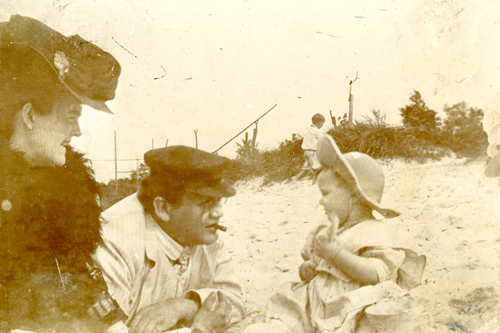1. Munich
During a concert stay in Karlsruhe, Reger receives his appointment as university music director and professor at the Royal Conservatoire in Leipzig; while giving up the first job as soon as the following year, he retains his master class for composition established especially for him until his death. Its reputation radiates all over the world and attracts students from home and abroad.
2. Leipzig

In March, Max and Elsa Reger move to Leipzig with a 90-year-old great-aunt; in July, the childless couple take the orphan Christa into the family. A generous financial grant from Henri Hinrichsen of the publishing house C.F. Peters enables Reger to limit his concert activity for one year and to concentrate on his large-scale symphonic works, his “Herzblutwerke”1. With them, Reger achieves recognition as the leading German composer alongside Richard Strauss. The Dutch Maatschappij tot Bevordering der Toonkunst makes Reger an honorary member. The attempt to break the unfavourable tie to the publishers Lauterbach & Kuhn, who demand from him light and saleable works, and to change to C.F. Peters fails. Reger intervenes in the dispute about musical progress with two combative articles (Musik und Fortschritt [RWV Schriften A8], Degeneration und Regeneration in der Musik [RWV Schriften A10]) and comes into open opposition to his former teacher Hugo Riemann.
Postal items from this year whose sender or addressee is Max Reger.
Images from the Max Reger Foto Gallery that originate from this year and have a direct reference to Max Reger.
Object reference
Max Reger Biography – 1907, in: Reger-Werkausgabe, www.reger-werkausgabe.de/bio_1907.html, version 3.1.1, 31st January 2025.
Information
This is an object entry from the RWA encyclopaedia. Links and references to other objects within the encyclopaedia are currently not all active. These will be successively activated.